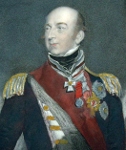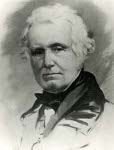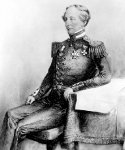

Sailors' Rest (later Shipwrecked & Distressed Sailors') Asylum
Cannon Street Road
|
This Asylum, which is situated in Cannon-Street Road, St. George's-
in-the-East, is under the care of the Minister of Trinity Church
contiguous; and is considered as an appendage to that Church, the
Minister of which holds Evening Prayer, and reads and expounds the
Scriptures to the inmates daily. The Bishop of Llandaff is Patron, and
Sir John Key, Bart, M.P. President. The following extract from a
Circular lately issued will shew the beneficial tendency of the
Institution:— Crowds of shipwrecked, stranded, castaway, robbed, or destitute Sailors reach London from all parts of our sea-shore and of the world, shirtless, shoeless, and pennyless, who must perish in our streets but for prompt assistance. The SAILORS' REST ASYLUM is opened for all such distressing cases. Every forlorn and starving Sailor is here instantly received on application: he is washed and shaved, and has a basin of bergue, or thick oatmeal porridge, and a sea biscuit, every morning — is sent out to look for a ship through the day — and has a basin of good soup and a biscuit every evening, with clean straw for his bed. The number of Sailors in the Establishment, during the last winter, averaged from 80 to 100; and many more, in the most deplorable state, daily apply for relief, but cannot be admitted for want of funds to support them till they can obtain ships. By timely relief, sailors have been assisted to obtain ships; and have been kept from begging and robbing, and numerous other evils to which they might have been exposed, and from being a burden to the country in general; and, as such, the Institution has some claims of justice, as well as of mercy, on the public at large: but its claims will appear to be most urgent, when it is considered that great numbers of destitute sailors, by means of the Asylum, have been kept from actual starvation, and that the relief is for a class of men who very seldom have the benefit of parish assistance, or of the various local charities of our country; and when it is further considered, that men of various colours, and from different climates, many of whom never heard the Name of Jesus, are daily brought under the sound of His Gospel, the object needs no encomium to recommend it to the Christian World. |
The first annual public meeting of the friends and supporters of the
Shipwrecked and Distressed Sailors' Asylum was held on Thursday the 8th
ult., in the Lower Room, Exeter Hall. We observed with regret that very
few gentlemen connected with the mercantile interest took a part in the
proceedings, which were conducted principally by officers of the Royal
Navy. Sir E. Codrington, G.C.B., M.P., the president of the institution,
having been moved to the chair, said that he felt the greatest
gratification in being in any way enabled to advance the interests of
the Institution, were it for no other reason than through the great
respect which he entertained for the illustrious lady who patronized
it—Her Royal Highness the Duchess of Kent. That lady had been
originally averse to naval affairs, but had taken means to become
familiar with the details of maritime life, that she might be better
able to instruct her royal daughter in every thing connected with her
future station, as the Monarch of the greatest commercial nation in the
universe. At the present day, as soon as sailors landed on our shores
and had received the wages of their voyage, they were beset by those
odious wretches, the crimps, who made it a trade to live by imposing on
their simplicity and open-heartedness, and in a few days robbed them of
the fruits of years of labour, danger, and enterprise. It was one of
the objects of the society to protect these It was one of the objects
of the society to protect these poor fellows from those land-sharks by
providing them with accommodation at the Asylum, to which they could
bring their sea-chests, bedding, &c., maintain themselves, and be
allowed every fair indulgence. There was one great hardship on the
sailor to which he would particularly refer, and which was,—that if he
were engaged to work a vessel to the East Indies or elsewhere. and back
again. and if she were wrecked by any cause whatsoever. he lost not
only his clothing and sea-stores, but also all claim for wages, no
matter how blameless his conduct may have been. When he informed the
meeting that one of the objects of the institution was to save these
men from the miseries thus inflicted on them in consequence of
circumstances over which they could have no control, he was confident
that his appeal to their benevolence would not be wholly unsuccessful. Sir E. Codrington, G.C.B., M.P., the president of the institution,
having been moved to the chair, said that he felt the greatest
gratification in being in any way enabled to advance the interests of
the Institution, were it for no other reason than through the great
respect which he entertained for the illustrious lady who patronized
it—Her Royal Highness the Duchess of Kent. That lady had been
originally averse to naval affairs, but had taken means to become
familiar with the details of maritime life, that she might be better
able to instruct her royal daughter in every thing connected with her
future station, as the Monarch of the greatest commercial nation in the
universe. At the present day, as soon as sailors landed on our shores
and had received the wages of their voyage, they were beset by those
odious wretches, the crimps, who made it a trade to live by imposing on
their simplicity and open-heartedness, and in a few days robbed them of
the fruits of years of labour, danger, and enterprise. It was one of
the objects of the society to protect these It was one of the objects
of the society to protect these poor fellows from those land-sharks by
providing them with accommodation at the Asylum, to which they could
bring their sea-chests, bedding, &c., maintain themselves, and be
allowed every fair indulgence. There was one great hardship on the
sailor to which he would particularly refer, and which was,—that if he
were engaged to work a vessel to the East Indies or elsewhere. and back
again. and if she were wrecked by any cause whatsoever. he lost not
only his clothing and sea-stores, but also all claim for wages, no
matter how blameless his conduct may have been. When he informed the
meeting that one of the objects of the institution was to save these
men from the miseries thus inflicted on them in consequence of
circumstances over which they could have no control, he was confident
that his appeal to their benevolence would not be wholly unsuccessful.Admiral Sir Edward Codrington [right] had a distinguished naval career and was Liberal MP for Devonport from 1832-39. Captain H.M. Marshall, R.N., the honorary secretary, then read the Report of the Managing House Committee. The Committee had been enabled by the funds placed at their disposal to keep open during the last winter the doors of the institution, which otherwise would have been closed. They had encountered great difficulties in taking on themselves, on the 1st of July, 1836, the management of the institution, which under a different name and management had lost many of its most powerful supporters, and had been reduced to an impoverished condition. Their appeals through the daily and periodical journals had been nobly responded to; and, as they had restored the institution to the confidence of the public, they hoped that the examples so liberally set by several public companies and private individuals would be followed, to an extent to enable them to carry out the plans which they had in view for the benefit of seamen generally. The objects of the institution were twofold: First,—To afford a place of refuge to all shipwrecked and distressed seamen, and supply clothing to such as may have lost their all. And, secondly,—To afford lodging, free of expense, to seamen who would bring their chests and bedding to the Asylum, and prefer such accommodation to the haunts of vice and plunder, for which accommodation the only payment required would be a trifling sum for firing and the use of cooking utensils, as such men should support themselves. The Asylum was like 'The Dreadnought, Seamen's Hospital Ship', open to receive the distressed of every clime, creed, and country without distinction. It contained a mess room for 100 men, and a dormitory for 150; and a list was kept there of all vessels fitting out in the several docks, captains' names, and destinations. The Committee wished to enlarge the building by erecting several offices, of which they stood greatly in need, and to be enabled to receive a greater number of seamen, who would board themselves, distinct from the distressed sailors; for which purposes they hoped for the co-operation of all the mercantile men throughout the British dominions. There was a chapel attached to the Asylum, in which the inmates regularly attended, morning and evening—sittings were also secured for them in Trinity Chapel, Cannon Street Road, in connexion with the Church of England, where they attended morning and evening on the Sabbath. The Committee had reduced the number of the sad spectacles of begging seamen, for whom employment, or medical advice and assistance, if necessary, were procured. The Report concluded with an enumeration of the donations for the past year. Captain Marshall was a tireless campaigner for distressed seamen. His Letters Between 1836 and 1838 ... to the Right Honourable the Lord Mayor of the City of London Respecting Shipwrecked and Distressed Seamen: Also Relative to Persons who Assume that Character and are Frequently Begging in the Streets; An Appeal to the British Nation on behalf of the Mercantile Marine (Ridgway 1835) set out a programme for relief. The Revd John Harris won a £50 prize from the British & Foreign Sailors Society for a somewhat similar programme, published as Britannia: or, the Moral Claims of Seamen Stated & Enforced. In The Nautical Magazine 'An Old Shipmaster' claimed that he had simply cribbed Marshall's ideas, but Harris denied this, and the editor said that although rowing in the same boat as Captain Marshall he neither wishes to pluck his laurels nor supersede him in his designs. Sir T[homas] Troutbridge, Bart., M.P., moved that the Report be received and printed and observed that the very indifference to danger and disregard of personal considerations, which made British seamen the unconquerable guardians of the nation's rights, unfitted them for attending to their private affairs, and therefore it was the duty of those who profited by their gallant recklessness, to look to their necessities, and particularly at the present day, as, by the Poor Law Amendment Act, parish officers could no longer grant shipwrecked seamen that relief which they used formerly to afford.  R. Ingham Esq., M.P., seconded the motion. As
the merchant service was
the nursery from which the sailors of the Royal Navy were taken, as
they were wanted, he hoped the lovers of the Naval glory of Britain
would contribute to the funds of the Institution, as it was the best
calculated to promote the moral and religious interests of the seamen. R. Ingham Esq., M.P., seconded the motion. As
the merchant service was
the nursery from which the sailors of the Royal Navy were taken, as
they were wanted, he hoped the lovers of the Naval glory of Britain
would contribute to the funds of the Institution, as it was the best
calculated to promote the moral and religious interests of the seamen.Robert Ingham MP QC [right] was the first Member of Parliament (a Whig) for South Shields - which was David Miliband's seat. T.S. Buckingham Esq., M.P., supported the motion at some length. Captain Manby moved the second Resolution approbatory of the principles on which the Asylum was conducted, and pledging the meeting to promote its interests. He referred to the success which had attended his efforts for the prevention of the loss of lives by shipwreck, and hoped that similar results would attend the exertions of the Society, in preserving poor seamen from the miseries that awaited them on land after they had escaped the perils of the sea. Captain George William Manby FRS pioneered various life-saving devices for the sea, including the Manby mortar (later the breeches buoy), which fired a line to a ship in distress - and was said to have saved 1,000 lives during his lifetime - and a portable fire extinguisher. He was an obsessive self-publicist, touring Britain and Europe with his inventions, but was unpopular, and died a bitter and forgotten man - his body was found sitting at a window looking out to the ships in Yarmouth. Right is a portrait he commissioned of himself.
Captain Barber, H.C.S., seconded the Resolution. It had been said that sailors were ungrateful, but he knew, from his own experience of them, that there was no class of men more keenly sensible of good treatment, or more willing to give substantial proofs of their gratitude, when the hour of danger was arrived. It was lamentable to observe the indifference of the mercantile men of this country to the state of their seamen, of whom they generally knew no more than what they learned from the wages book. They cared not about the efficiency of their captains or sailors, provided their vessels were insured. The cool intrepidity of the seamen of the Royal Navy was to be attributed to the confidence which they felt, that if they should be disabled in their country's service, there was a comfortable home secured for them; while if any accident should render the merchant seaman unable to earn his bread, he would sink into the grave unpitied, unbefriended, and unknown. Captain James Barber of the Honourable [East India] Company's Service produced The Overland Guide Book, a complete vade-mecum for the overland traveller, in 1845.
 Captain Baynes R.N., C.B., moved the third
Resolution, to the effect, that the Royal Patronesses and the other
supporters of the Institution should be solicited to continue their
services, and that certain gentlemen named in the Resolution be
requested to form a general Committee for the ensuing year. He
regretted that so few gentlemen connected with the shipping interests
of the country were present at the meeting. If their absence arose from
an indifference to the state of those poor men, by whose labours they
accumulated their fortunes, he would not have language to express his
feelings on such unworthy conduct. Captain Baynes R.N., C.B., moved the third
Resolution, to the effect, that the Royal Patronesses and the other
supporters of the Institution should be solicited to continue their
services, and that certain gentlemen named in the Resolution be
requested to form a general Committee for the ensuing year. He
regretted that so few gentlemen connected with the shipping interests
of the country were present at the meeting. If their absence arose from
an indifference to the state of those poor men, by whose labours they
accumulated their fortunes, he would not have language to express his
feelings on such unworthy conduct.Later Admiral Robert Lambert Baynes [right], he commanded the Pacific Station during the San Juan border dispute in 1859. Lieutenant R.A. Newman, R.N., seconded the Resolution. He attributed the improvidence of sailors to their unsettled habits; the smallness of their means rarely admitted them to provide for future wants, and the hourly jeopardy to which they were exposed increased the probability that all their plans of economy would be intercepted by the stroke of death. Captain Smith, R.N., moved the thanks of the meeting to the Managing House Committee for their services during the past year, and that some gentlemen named in the Resolution should be requested to continue their labours. It was seconded by O.P. Holmes, Esq., and carried. The fifth Resolution, concerning the adoption of some rules for the government of the Institution, was moved by— Captain Saumarez, who was glad to learn that the people in general were becoming more interested in the support of the seamen's comforts, and hoped that the day was not far distant, when one of the tests which would be proposed to the candidates at the hustings would be as to whether they were the friends of the sailors. It was most anomalous that the nation should be so disposed to bepraise the exertions of its seamen, and so unwilling to requite them. Captain Baynes, R.N., C.B., seconded the Resolution, and advocated the foundation of a National Establishment for the reception of aged and infirm seamen. A vote of thanks having been passed to the Chairman, the Meeting separated. |
Back
to Trinity Episcopal Chapel